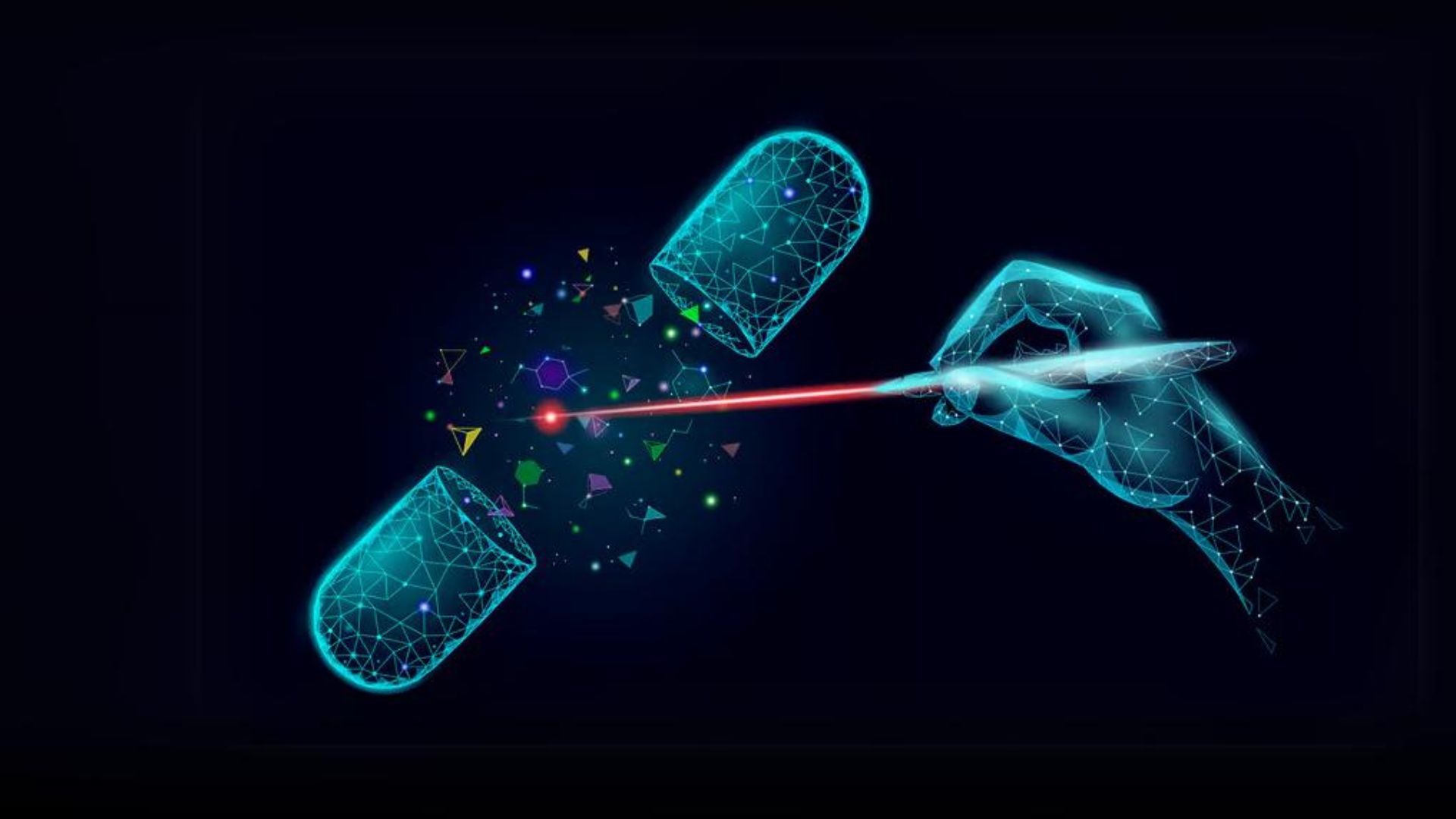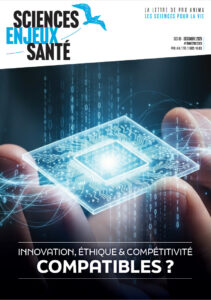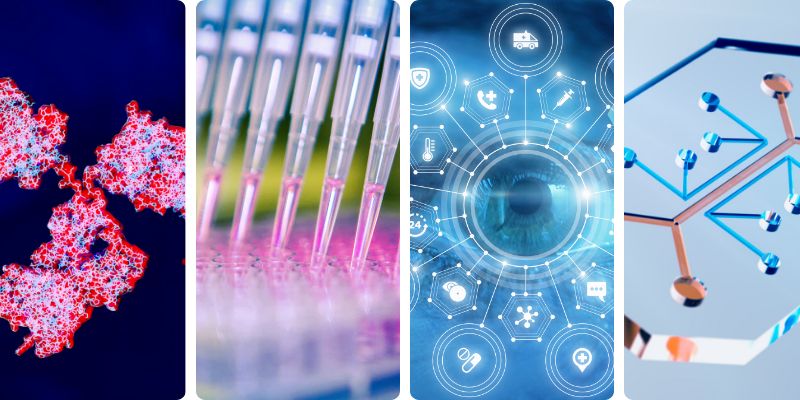
News on non-animal methods
JUNE 17-21, 2024
NEWS, REPORTS & POSITION STATEMENTS
1. Using AI to Predict the Probability of Success in Drug Development
Artificial intelligence (AI) is one of the latest tools deployed to reduce costs and increase drug discovery, security assessment and development productivity. AI is a very hopeful technique because of its ability to detect patterns and learn similar to the way humans learn, just much faster and paired with the ability to ingest vast amounts of data in a short period of time.
The probability of technical and regulatory success (PTRS) is a quantitative assessment of the inherent risk a drug development program bears. This metric estimates the likelihood that a pharmaceutical or biotech product will successfully meet the technical (scientific and clinical) and regulatory (health authorities) requirements from development to market approval. “Failing early” saves potentially 10s or even 100s of millions of dollars in development costs. In addition, “Failing early” also avoids subjecting volunteers and patients to unnecessary treatments.
2. Multistakeholder round-table on the Commission roadmap towards phasing out animal testing and phasing in NAMs for chemical safety assessments
The event took place in Brussels and brought together key stakeholders with expertise from across EU institutions, national regulators, industry, environmental protection and human health: DG GROW, DG ENV and JRC, EPAA, ECHA, EMA, RIVM, KEMI, BfR, Ministry of Env of Austria, industry representatives, organisations, academia and many more. Co-organised by Humane Society International, PETA, Cruelty Free International, the ECEAE, and Eurogroup for Animals, this full-day of open discussion enabled deeper understanding of blockages and advances in specific regulatory contexts and the emergence of strong and cross-sectoral ideas to help make the EU deliver an ambitious Roadmap. All participants were here to deliver key elements and perspectives and work towards the same goal: moving forward.
The NGO-led round-table is a successful 1st step towards better alignment, and collaborative and coordinated actions to support the EU Roadmap towards animal-free science. A report with recommendations will be prepared in advance of the Commissions’s October 2024 Workshop.
INTERVIEWS, NOMINATIONS & AWARDS
3. The 7th edition of the NextInnov 2024 prize highlights animal-free technologies
Early June, in this weekly news dedicated to NAMs, we highlighted the Sovtech Prize awarded to Netri, for its use of human organ-on-chip devices coupled with AI treatments to predict the clinical effect of a drug candidate, with predictive responses on toxicity, efficacy and action mechanisms.
Another laureate to congratulate for its biomedical research, winning in the category Healthtech and Public Vote Prize: Alia Santé which offers artificial intelligence algorithms to create digital twins of real health data, but without sensitive information relating to patients. It therefore ensures the reliability and confidentiality for patients.
Organized by Banque Populaire and Maddyness, the annual Nextinnov prize rewards French innovative startups and companies, highlighting the importance of entrepreneurial diversity across the country.
Read more (FR)
INDUSTRY, BIOTECH & PARTNERSHIPS
4. SenzaGen accelerates portfolio expansion within non-animal testing
The funding enables SenzaGen to better meet customer needs within in vitro testing, fostering innovation and advancing non-animal testing solutions.
CEO Peter Nählstedt comments: “This achievement underscores our commitment to non-animal testing, innovation, and excellence. We are proud of the progress we have made and look forward to continuing to drive the transition from animal testing to methods better suited to reflect human biology. This will contribute to creating safer and more efficacious products for society.”
Watch the interview of SenzaGen’s CEO
5. Molecular device inaugurates their latest patient-derived organoid facility
Molecular Devices, a leader in high-performance life science solutions, has officially opened its multi-million-pound site designed for the production of patient-derived organoids (PDOs). The new facility expands the company’s capacity to manufacture 300 million PDOs annually, significantly bolstering the availability of these organoids for use in drug discovery and research. This scale is expected to reduce the time and cost associated with bringing new therapies to market, enhancing the application of PDOs in precision medicine and predictive toxicology.
Professor Evans, Nobel laureate, expressed his satisfaction with the advancements in stem cell research during the opening: “I am very pleased to see the developmental potential of human stem cells being so effectively leveraged in organoids for facilitating pharmaceutical research.”
6. Merck KGaA invest into AI biotechnology up to $376M
Merck KGaA is hoping to sprout some new oncology and immunology therapeutics with Biolojic Design’s AI-driven drug discovery engine. The partnership could yield up to 346 million euros ($376 million).
The two companies are aiming to develop ADCs (antibodies-drugs conjugate) that can block tumor escape mechanisms, overcome tumor and patient heterogeneity and improve on safety and efficacy.
7. Novel Liver Ring Trial Set to Revolutionize Drug Safety Assessment
Guided by the insights and advice from the European Medicines Agency (EMA) and the EU Reference Laboratory for alternatives to animal testing (EURL ECVAM) of the European Commission’s Joint Research Centre (JRC), the Liver Ring Trial aims to refine its methodology and expand its application.
This collaborative effort involving ESQLabs (a computational model expert), UCB (a global biopharmaceutical company and initiator of the ring trial), and five other pharmaceutical companies (Orion Corporation, Sanofi-Aventis Recherche & Développement, Technologie Servier/Biologie Servier, AstraZeneca, and Boehringer Ingelheim) aims to validate the reproducibility and accuracy of a Liver Micro-Physiological System (MPS) in predicting drug-induced liver injury (DILI) and intrinsic clearance, marking a paradigm shift in non-clinical drug assessment.
SCIENTIFIC DISCOVERIES & PROTOCOLS
8. Bioengineered human colon organoids with in vivo-like cellular complexity and function
Olga Mitrofanova et al. from the Roche Institute of Human Biology, developed human mini-colon tissues that replicate the anatomical structure, homeostatic cell turnover, and cellular diversity of the natural colon, by integrating bioengineering and advancements in organoid culture. This breakthrough has enabled them to generate tissues from the small intestine and study colon function in real-time.
Human mini-intestines provide a powerful tool for assessing drug safety profiles and predicting drug-induced toxicities. These bioengineered organoids also offer interesting opportunities for exploratory gut research, for example for modeling the intestinal epithelial barrier and its functions in vitro. Additionally, they allow for the inclusion of other cell types, such as immune cells and fibroblasts, to enhance our understanding of multifactorial and complex diseases, including colorectal cancer and inflammatory bowel disease.


